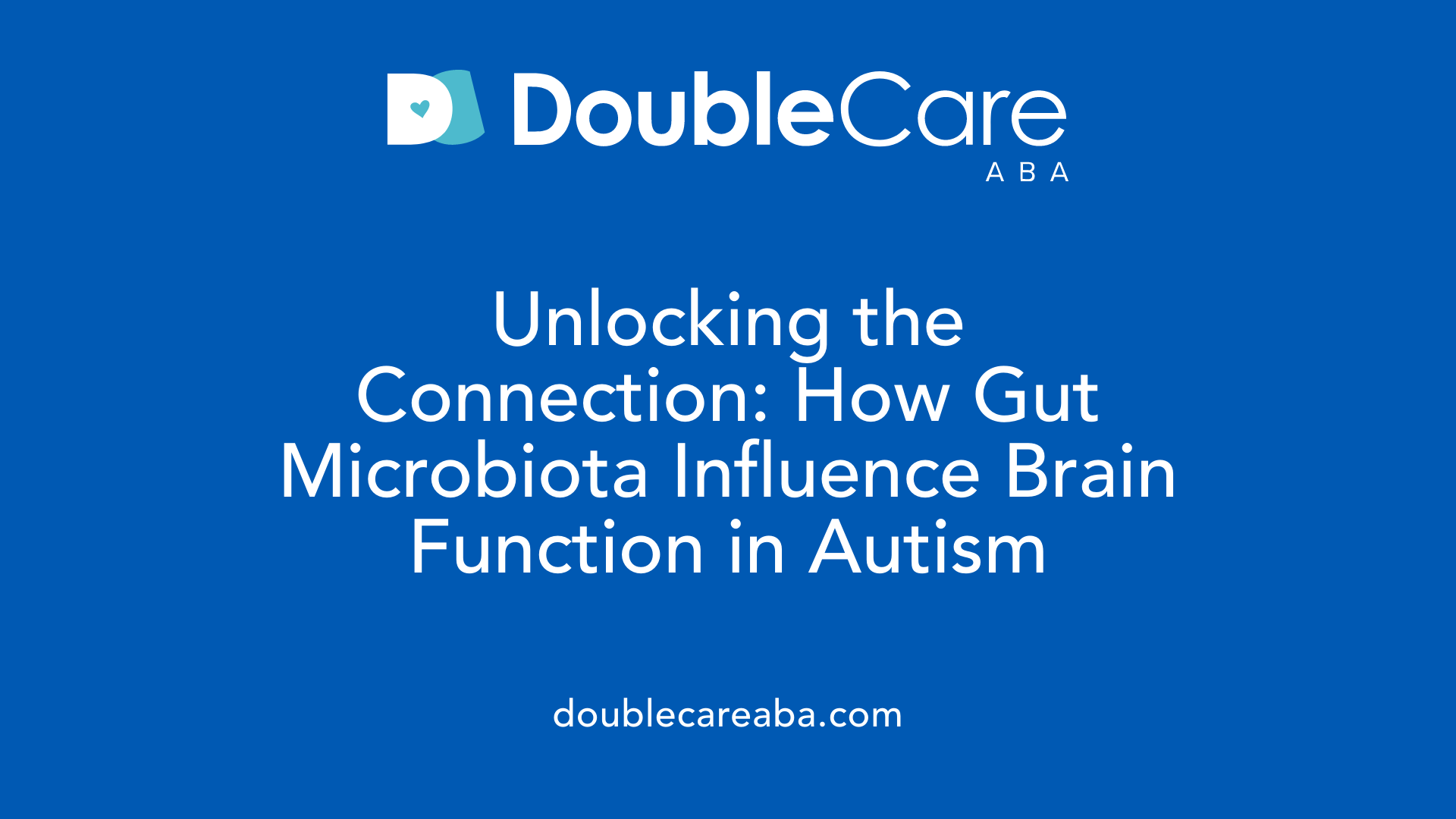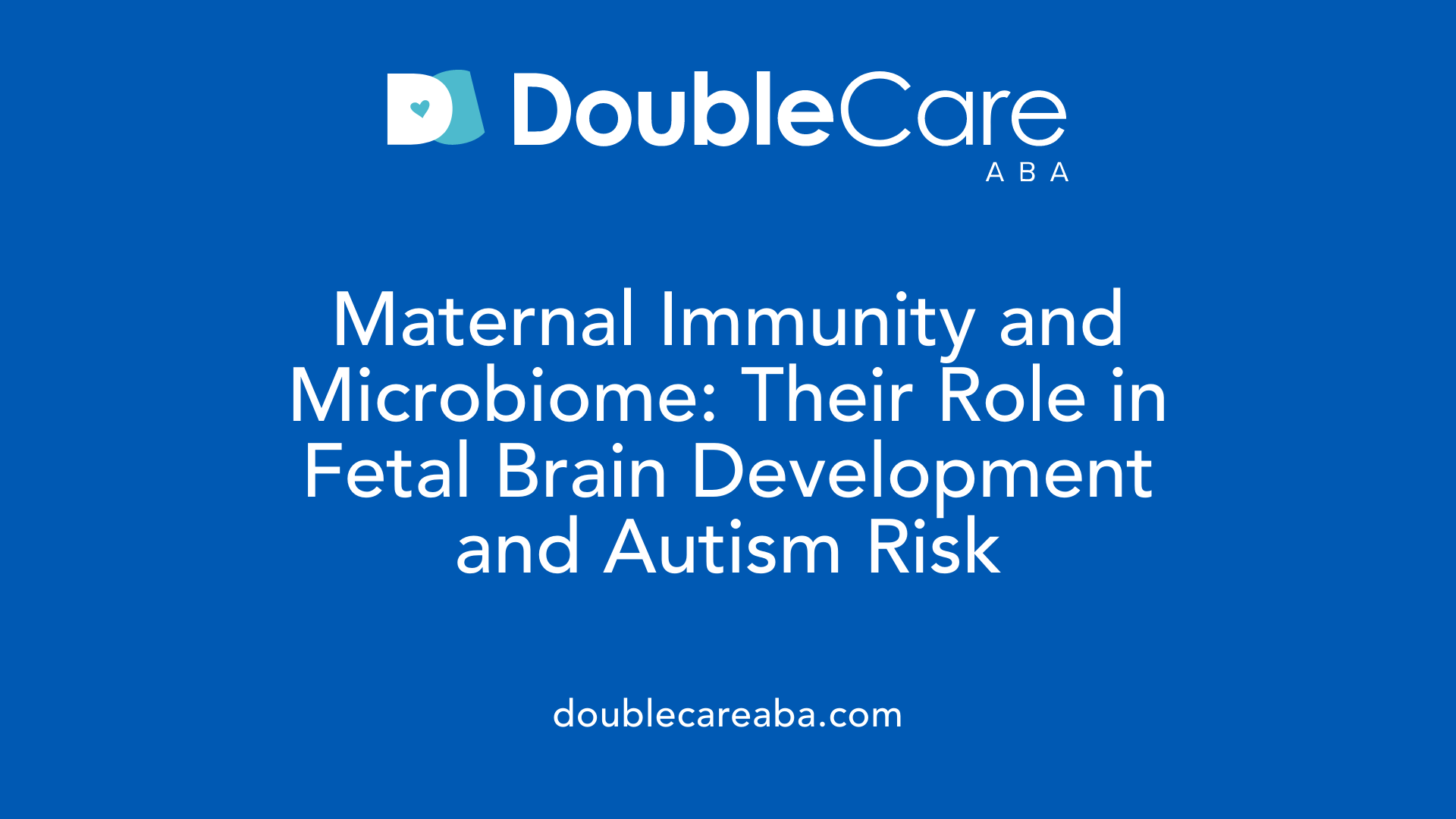Unraveling the Complex Interplay of the Microbiome and Neurodevelopment
Recent scientific advancements highlight the profound impact of gut health on autism spectrum disorder (ASD), emphasizing the gut-brain axis's role in influencing behavior, gastrointestinal symptoms, and neurodevelopment. This article explores the intricate biological mechanisms, recent research findings, and potential therapies targeting the gut microbiome to better understand and manage autism.
Understanding the Gut-Brain Axis and Its Relevance to Autism

What is the gut-brain axis and how does it relate to autism?
The gut-brain axis is a complex communication system that connects your gastrointestinal (GI) system with your brain through multiple pathways, including neural, hormonal, and immune signals.
This system allows the gut and the brain to influence each other’s functions. Gut microbiota—trillions of bacteria living in our intestines—play a vital role in this interaction. These bacteria produce substances like short-chain fatty acids, serotonin, and GABA, which can impact brain activity and mood.
In individuals with autism spectrum disorder (ASD), studies have found significant alterations or imbalances, known as dysbiosis, in the gut microbiome. These changes often correlate with behavioral challenges and gastrointestinal symptoms common in ASD.
The metabolites produced by gut bacteria can influence brain functions via several pathways. For instance, the vagus nerve directly transmits signals between the gut and the brain, while immune responses and hormonal pathways also modulate this communication.
Emerging evidence indicates that disruptions in this microbiota–gut–brain connection—whether caused by early microbial imbalances, diet, or immune activation during pregnancy—may contribute to ASD’s development or severity.
Therapeutic strategies targeting the microbiome, such as probiotics, prebiotics, and fecal microbiota transplants (FMT), are being explored for their potential to restore healthy gut-brain communication and possibly reduce some ASD symptoms.
The Impact of Maternal Microbiome and immune Activation During Pregnancy
 Research involving mice provides insightful clues about how maternal health influences fetal brain development, particularly in relation to autism spectrum conditions. Maternal infection triggers an immune response characterized by increased levels of the cytokine IL-17a. This immune activation can have profound effects on the developing fetus's brain, potentially contributing to autism-like behaviors later in life.
Research involving mice provides insightful clues about how maternal health influences fetal brain development, particularly in relation to autism spectrum conditions. Maternal infection triggers an immune response characterized by increased levels of the cytokine IL-17a. This immune activation can have profound effects on the developing fetus's brain, potentially contributing to autism-like behaviors later in life.
One critical aspect of this process is the role of IL-17a. Elevated IL-17a during pregnancy not only directly affects fetal brain development but also modifies the maternal microbiome. These changes in gut bacteria can prime the offspring's immune system, making it more susceptible to future inflammatory responses. Such immune dysregulation is linked to neurodevelopmental issues, emphasizing the importance of maternal immune health.
Alterations in the maternal microbiome resulting from immune activation can influence the immune system development of the offspring. These effects may increase the risk of intestinal inflammation and other gastrointestinal symptoms often observed in individuals with autism. Notably, research has shown that blocking IL-17a during pregnancy can prevent the development of intestinal inflammation in the offspring, highlighting its causal role in microbiome and immune alterations.
This research draws attention to the broader context of how environmental factors, such as maternal infections during pregnancy, might be connected to immune-related dysfunctions and autism. The emerging understanding of the gut-brain axis, a bidirectional communication system between gut microbiota and the brain, supports the idea that gut health significantly impacts neurological development. Studies suggest that employing strategies to regulate maternal immune responses and microbiome composition could influence neurodevelopmental outcomes.
Overall, this research underscores the complex interplay between immune activation, microbiota, and brain development, offering promising avenues for preventive and therapeutic interventions targeting the maternal microbiome to reduce autism risk.
Gastrointestinal Symptoms and Their Implications in Autism

Are there gastrointestinal symptoms associated with autism that have implications for treatment?
Gastrointestinal (GI) issues are highly prevalent among individuals with autism spectrum disorder (ASD), with estimates ranging from 46% to 84%. Common problems include chronic constipation, diarrhea, abdominal discomfort, gastroesophageal reflux, and food allergies. These symptoms can significantly affect the wellbeing of autistic individuals, leading to discomfort, pain, and behavioral challenges.
Because children with ASD often face communication difficulties, expressing their discomfort can be challenging, making the recognition and diagnosis of GI issues more complex. Contributing factors to GI symptoms include gut dysbiosis, immune dysfunction, food sensitivities, digestive enzyme deficiencies, sensory sensitivities, and genetic factors. Many autistic children also experience food selectivity or limited diets, which can exacerbate gut problems.
Addressing these gastrointestinal symptoms through tailored medical evaluations and nutritional management can lead to substantial improvements. Treatments aim to reduce discomfort, improve bowel function, and enhance overall quality of life. Interventions like diet modifications, probiotics, and in some cases, fecal microbiota transplants have shown promise in alleviating GI issues.
Furthermore, GI health is intricately linked to behavioral outcomes via the gut-brain axis. Improving gastrointestinal function not only relieves physical suffering but can also mitigate behavior problems, enhance social engagement, and support cognitive development. Recognizing the importance of GI symptom management in autism underscores its potential to significantly impact both health and behavior, offering a pathway for more holistic care.
Dietary Influences and Therapeutic Strategies for Gut and Behavior Improvement

Can diet influence gut health and autism symptoms?
Diet plays a significant role in shaping the gut microbiota, which in turn can affect autism symptoms. Consuming foods rich in fiber, such as fruits, vegetables, and whole grains, encourages microbial diversity and the production of beneficial metabolites like short-chain fatty acids. Fermented foods like kefir, sauerkraut, and microbiota-rich vegetables help introduce probiotics directly into the gut.
Nutritional interventions have shown promise. For example, reducing intake of gluten and casein—proteins found in wheat and dairy—may benefit some individuals by decreasing gut inflammation and permeability. Supplementing with omega-3 fatty acids, vitamins, and tailored probiotics can support gut health, immune regulation, and possibly reduce gastrointestinal and behavioral symptoms.
Research indicates that diet influences the microbiota–gut–brain axis, which can impact neurological development and behavior. A balanced diet promoting gut health might help modulate immune responses, reduce gut dysbiosis, and influence neurochemical production, thereby alleviating some autism-related challenges.
In summary, supporting gut microbiome diversity through dietary choices is a promising avenue for managing gut issues and possibly improving behavioral outcomes in autism. While more research is needed, maintaining a wholesome, fiber-rich diet appears beneficial in fostering a healthier gut environment and supporting overall well-being.
Biological Mechanisms Linking Gut Health to Autism
What are the potential biological mechanisms linking gut health to autism symptoms?
Research suggests that the connection between gut health and autism involves complex biological pathways, forming what is known as the microbiota–gut–brain axis. This system facilitates bidirectional communication between the gut and the brain, mediated through various factors such as microbial metabolites, neurotransmitters, and immune responses.
One of the main mechanisms involves microbial metabolites like short-chain fatty acids (SCFAs). These are produced during microbial fermentation of dietary fibers and can influence neurological development, potentially impacting behaviors seen in autism. For example, certain gut bacteria produce neurotoxins or substances that modulate neurotransmitter levels, such as serotonin, GABA, and dopamine, all of which are integral to mood, cognition, and social behaviors.
Alterations in gut permeability, often called 'leaky gut,' allow toxins and bacteria to enter the bloodstream. This immune activation can lead to neuroinflammation and disrupt normal brain development. Increased intestinal permeability has been observed more frequently in autistic individuals, suggesting a pathway through which gut barrier dysfunction might influence neurodevelopment.
Moreover, immune modulation plays a vital role. Maternal immune activation during pregnancy, associated with elevated IL-17a levels following infection, can interfere with fetal brain development. Such immune responses can cause inflammation that affects neurodevelopmental processes linked to autism. Once the child is born, immune signaling from an imbalanced gut microbiome can further exacerbate inflammation and neuroinflammation.
Therapeutic strategies like probiotics, dietary modifications, and microbiota transplants aim to restore healthy microbial communities to improve both gastrointestinal and neurobehavioral symptoms. While promising, ongoing research continues to clarify how these mechanisms specifically influence autism and how best to harness them for treatment.
Emerging Therapies Targeting the Microbiome in Autism Spectrum Disorder
Are there treatment approaches targeting the gut microbiome for autism?
Yes, several strategies are being explored to improve gut health and potentially alleviate autism symptoms through microbiome modification. Among these, fecal microbiota transplantation (FMT) and microbiota transfer therapy (MTT) have shown promising outcomes. These therapies involve introducing a healthy microbiome into the gut of individuals with autism, often resulting in significant improvements in gastrointestinal issues and, in some cases, behavioral symptoms. Clinical studies have provided evidence of both short-term and lasting benefits, suggesting their potential as part of comprehensive autism treatment.
In addition to FMT, the use of probiotics—beneficial bacteria—has gained attention. Specific strains like Bifidobacterium are linked with positive effects on gut diversity and may influence neuroactive compounds such as serotonin. Dietary modifications, including the use of prebiotics and specific dietary plans, aim to support a healthier gut microbiome and reduce inflammation.
Research highlights that restoring a balanced microbial composition—such as increasing beneficial bacteria and reducing harmful ones like certain Clostridium species—can impact the microbiota–gut–brain axis. This axis influences neurodevelopment and behavior through immune responses, neurotransmitter production, and neural pathways.
While findings are encouraging, ongoing research is crucial to better understand mechanisms, refine treatment protocols, and establish safety and efficacy. Ultimately, microbiome-targeted therapies are emerging as promising adjunctive options in managing autism, with the potential to influence core symptoms and improve quality of life.
Harnessing the Potential of Gut-Brain Interventions in ASD
As research continues to unravel the complex relationship between gut health and autism, the importance of personalized, microbiome-focused interventions becomes clearer. While more definitive clinical evidence is needed, current findings affirm that optimizing gut microbiota through diet, probiotics, and therapies like fecal microbiota transplantation may offer promising avenues not only for alleviating gastrointestinal symptoms but also for improving behavioral and developmental outcomes. Future research holds the potential to lead to holistic, integrative treatments that target the gut-brain axis, ultimately improving the quality of life for individuals with autism.
References
- Gut-Brain Connection in Autism | Harvard Medical School
- Role of Gut Microbiome in Autism Spectrum Disorder and Its ...
- Nutrition and the Gut-Brain Connection - Autism Research Institute
- Gut-brain link may affect behavior in children with autism - USC Today
- Kids with autism show altered gut microbiome-brain interactions ...
- The Gut, Autism, and Mental Health
- Paper Suggests Link Between Gut Biome and ADHD, Autism















